Publications
Articles, publications, books, tools and multimedia features from the U.S. Institute of Peace provide the latest news, analysis, research findings, practitioner guides and reports, all related to the conflict zones and issues that are at the center of the Institute’s work to prevent and reduce violent conflict.
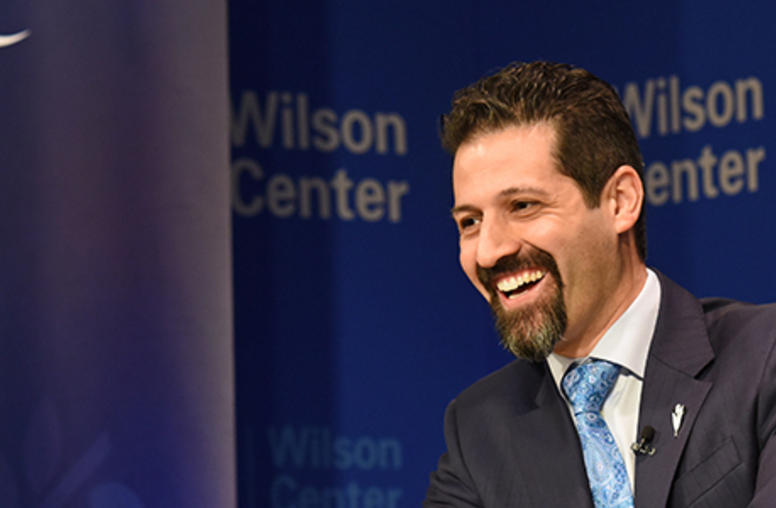
Iraq Operation to Recapture Mosul Needs Plan for Aftermath
The planning taking place to recapture Iraq’s second-largest city, Mosul, from the “Islamic State,” or ISIS, extremist group should involve not only meticulous military preparations but also careful thought to ensuring a peaceful aftermath is sustainable over the long term, said Qubad Talabani, the deputy prime minister of the country’s Kurdish region, which has helped lead the drive to end the extremist organization’s hold on vast swaths of territory. But the Kurdistan Regional Government (K...
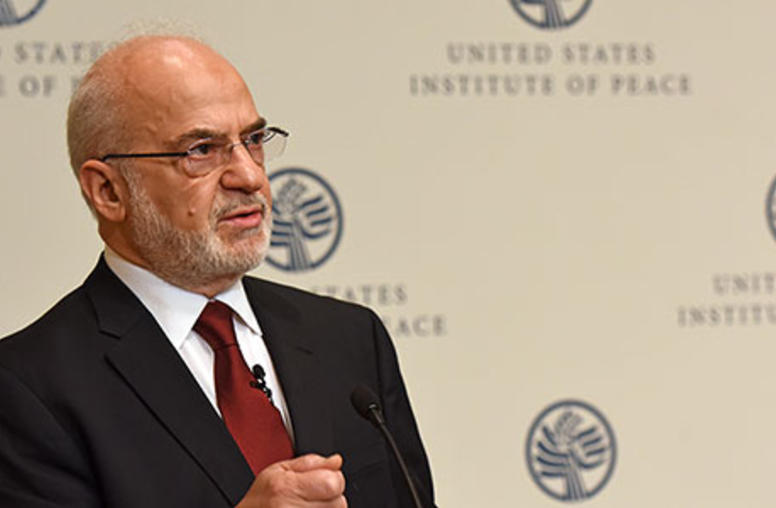
Iraqi Foreign Minister Appeals for Post-ISIS Aid
Iraqi Foreign Minister Ibrahim al-Jaafari and U.S. envoy Brett McGurk today emphasized the urgency of planning and financing Iraq’s recovery from the ISIS onslaught as areas the extremist group had controlled are recaptured more quickly than expected. The two spoke at the U.S. Institute of Peace in advance of an international conference of donors to Iraq convening in Washington tomorrow and a meeting the following day of the global coalition backing the fight.
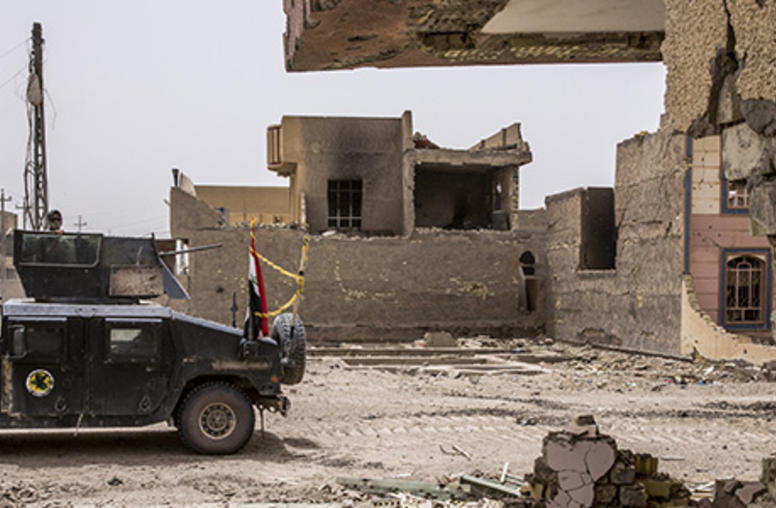
Iraq’s Executions: Aftershock of ISIS’ Deadliest Atrocity
Iraq’s execution yesterday of 36 men whom it accused of committing the deadliest single atrocity by the Islamic State group underscores that any stabilization of Iraq will require international support to strengthen the country’s overburdened judicial system, according to USIP Iraq specialist Sarhang Hamasaeed. Iraq’s government came under intense pressure from the country’s Shia Muslim majority population, and from the Shia “Popular Mobilization Forces,” or pro-government militias, to conduc...
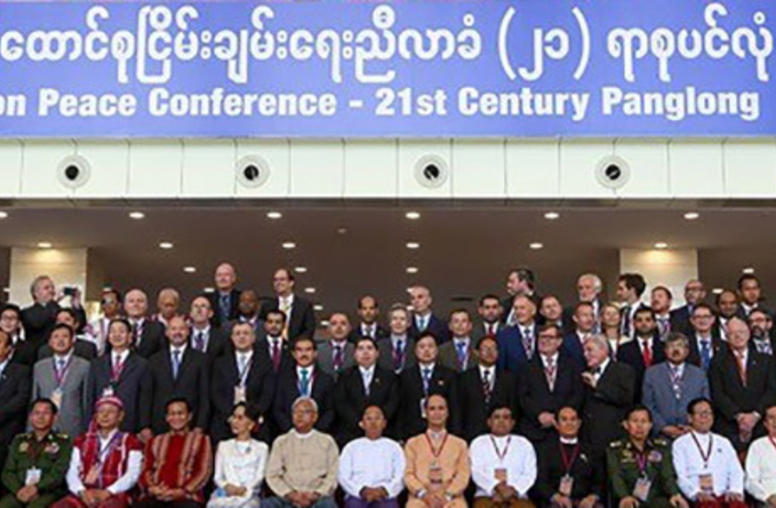
Q&A: Myanmar’s Peace Process, Suu Kyi Style
Four days of talks last week restarted Myanmar’s peace process almost a year after a Nationwide Ceasefire Agreement was signed by some but not all of the country’s armed groups. The process, known as the 21st Century Panglong Conference, or Union Peace Conference, is intended to convene every six months and aims to end the decades-long conflicts between and among the Myanmar army and an array of rebel groups. Vanessa Johanson, the Myanmar country director for the U.S. Institute of Peace, exam...
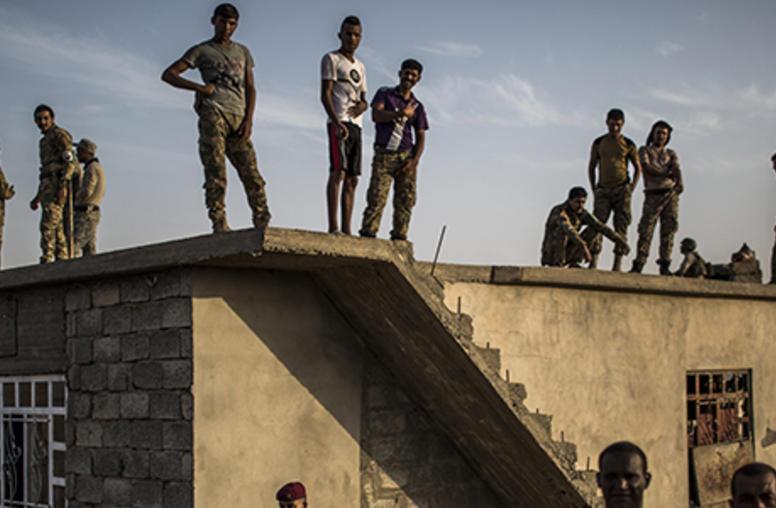
Mosul After ISIS: No Clear Plan for Peace
Two weeks into Iraq’s offensive to recapture Mosul from ISIS militants, the government and its fractious allies have not agreed on how to stabilize and govern the disputed region in the aftermath. The threat of new rounds of conflict, even after a recovery of Mosul from ISIS, is highlighted by the weekend’s surprise advance by Shia Muslim militias, which make up one of at least four main rival forces in the assault. The militia units announced that their fighters had begun a drive on the cont...
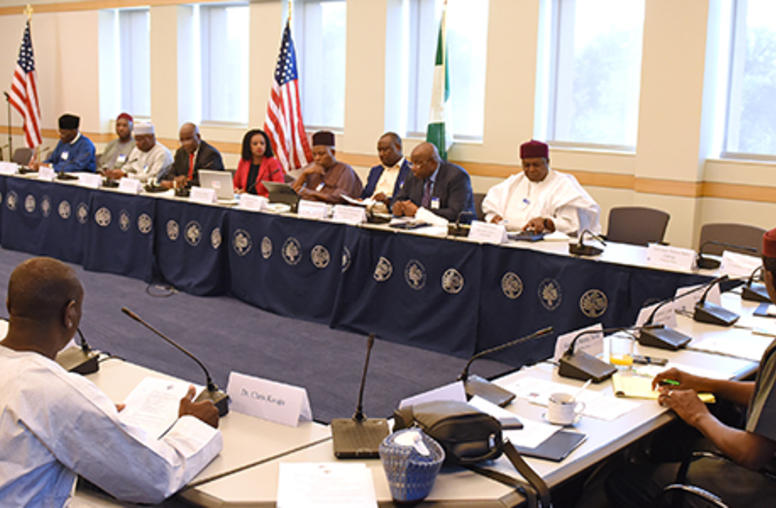
Nigerian Governors on Ways to Halt Crises, Boko Haram
A dozen governors from northern Nigeria say their region’s crises—warfare, poverty and millions of uprooted people—can be ended only with initiatives for education, reconciliation among rival groups, and the political inclusion of minorities and women. As Nigeria works to repair and build relations between police and communities, several governors said, the country’s federally run police system should be complemented with state or local police forces. The elected state governors, who wield im...
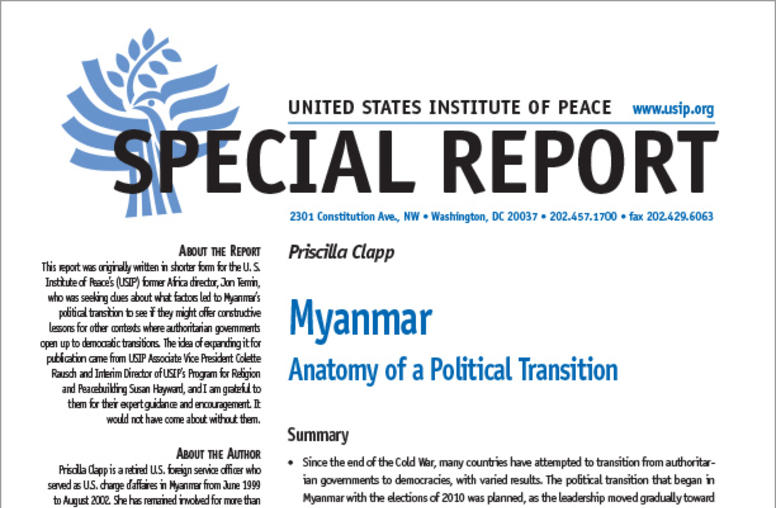
Myanmar
Many countries have attempted to transition from authoritarian governments to democracies, with many false starts. The political transition that began in Myanmar with the elections of 2010 was heavily planned by military leaders to gradually move toward democratization while retaining many of the authoritarian structures of the previous government during the transition. As Myanmar’s success has attracted great interest and support from the international community, this study analyzes the elem...
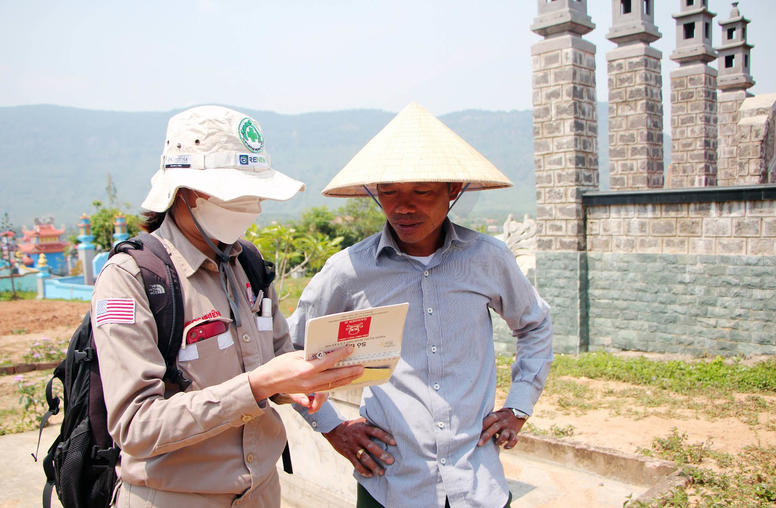
Clearing a Path for Peace in Vietnam
Once a symbol of Vietnam’s north-south division and the site of one of the 20th century’s bloodiest battles, Quang Tri province has quietly become an example of successful postwar reconstruction. Through a concerted effort led by provincial authorities, Quang Tri has reduced unexploded ordnance (UXO) casualties from thousands after the end of the Second Indochina War in 1975, and around 100 per year in the early 2000s, to nearly zero today.
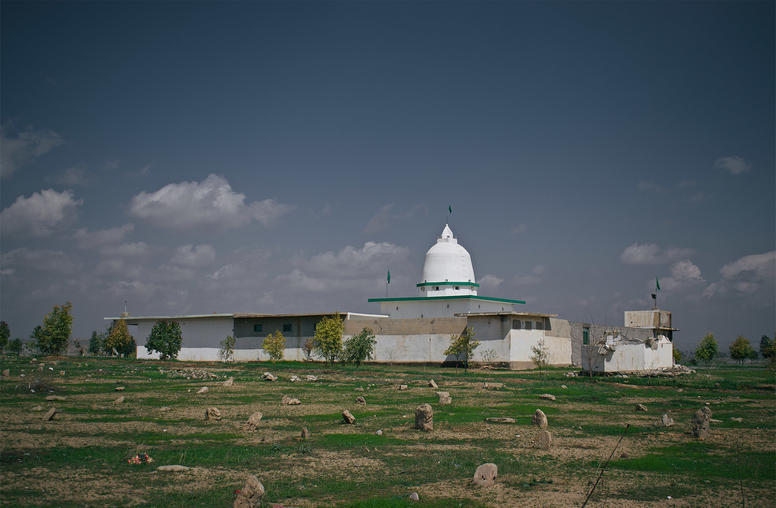
Threat to Kakai Community Poses Broader Challenges for Iraq’s Democracy
Amid the global pandemic, ISIS and the havoc it still wreaks have largely fallen out of the headlines. Nonetheless, the terrorist group’s genocidal march against Iraqi minorities has continued. In Iraq’s eastern Diyala province, ISIS has targeted the Kakai minority with multiple, vicious attacks. The plight of the Kakai community in Iraq is a microcosm of the larger existential challenges Iraq faces. Ethnic and sectarian divides have been a flashpoint for conflict and division for decades. For Iraq to move past the wreckage of ISIS, prevent the terrorist group’s resurgence, and advance its struggling democracy, the Kakai must not only be protected but woven more meaningfully into the diverse tapestry that is Iraq—and the United States has the opportunity to help.
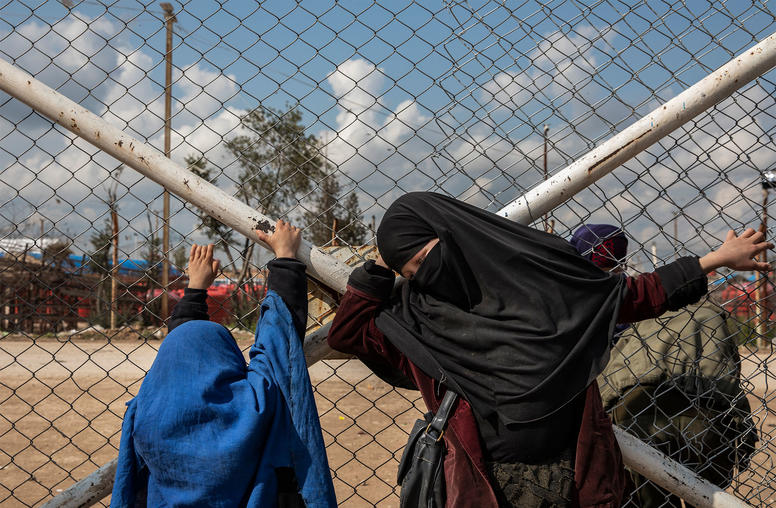
To End ISIS, We Must Find Futures for Its Survivors
At age 15, Shamima Begum ran away from home in England and, with two girlfriends, ventured into Syria’s war to join ISIS. Within days, she was married to an ISIS fighter; she has since had three children, all of whom have died. Begum, one of 70,000 former residents of the ISIS-declared state now confined in a displacement camp in Syria’s desert, is asking a British court to overturn a government order that stripped her of her citizenship. As nations worldwide seek justice, accountability—and their own security from ISIS’ violent extremism—Begum’s story shows how a “peacebuilding” approach is needed.